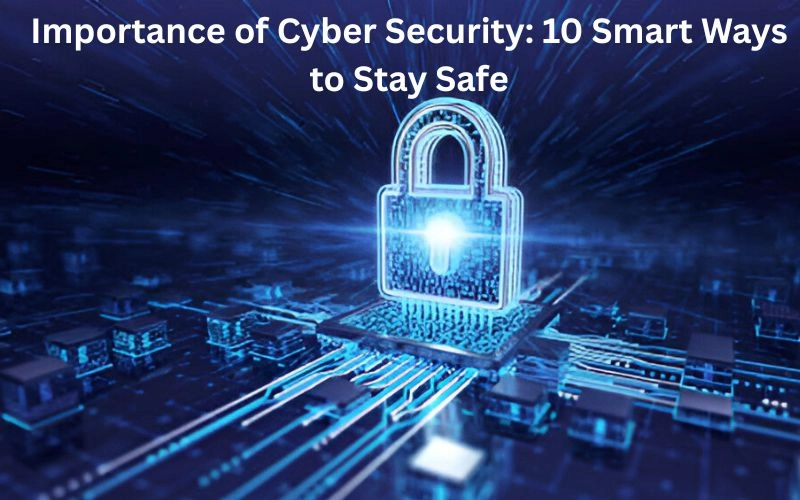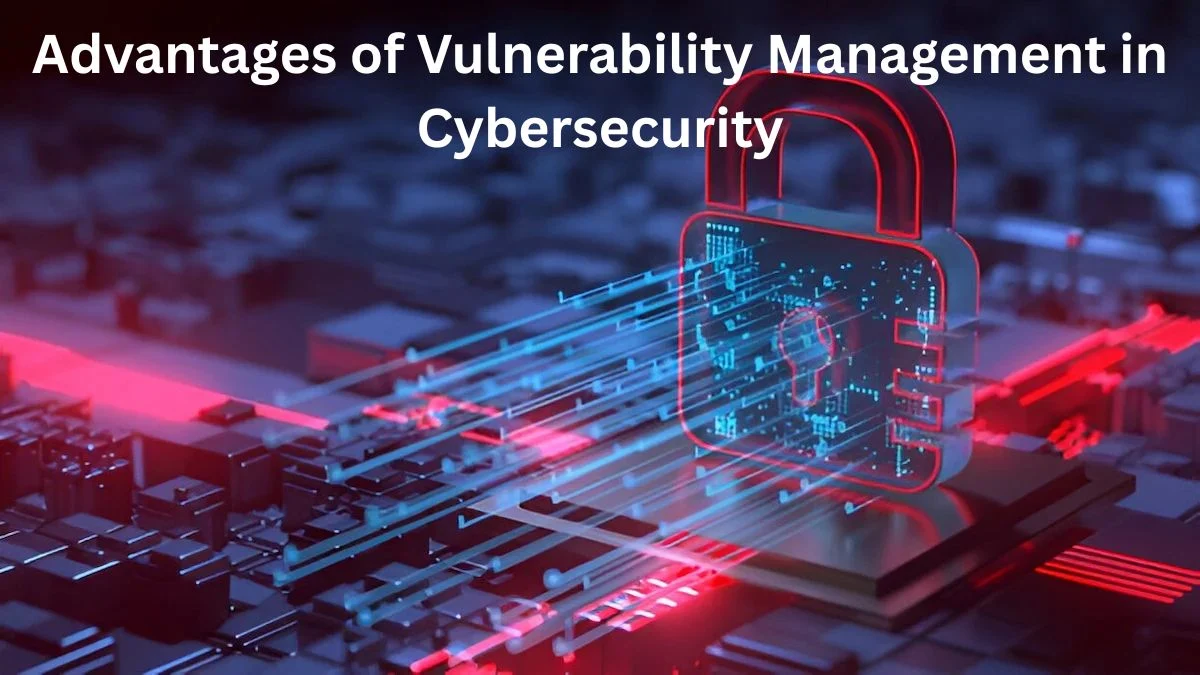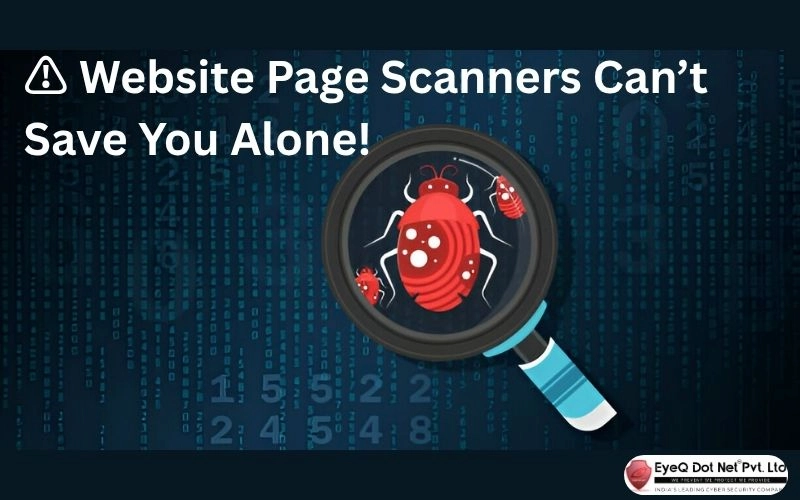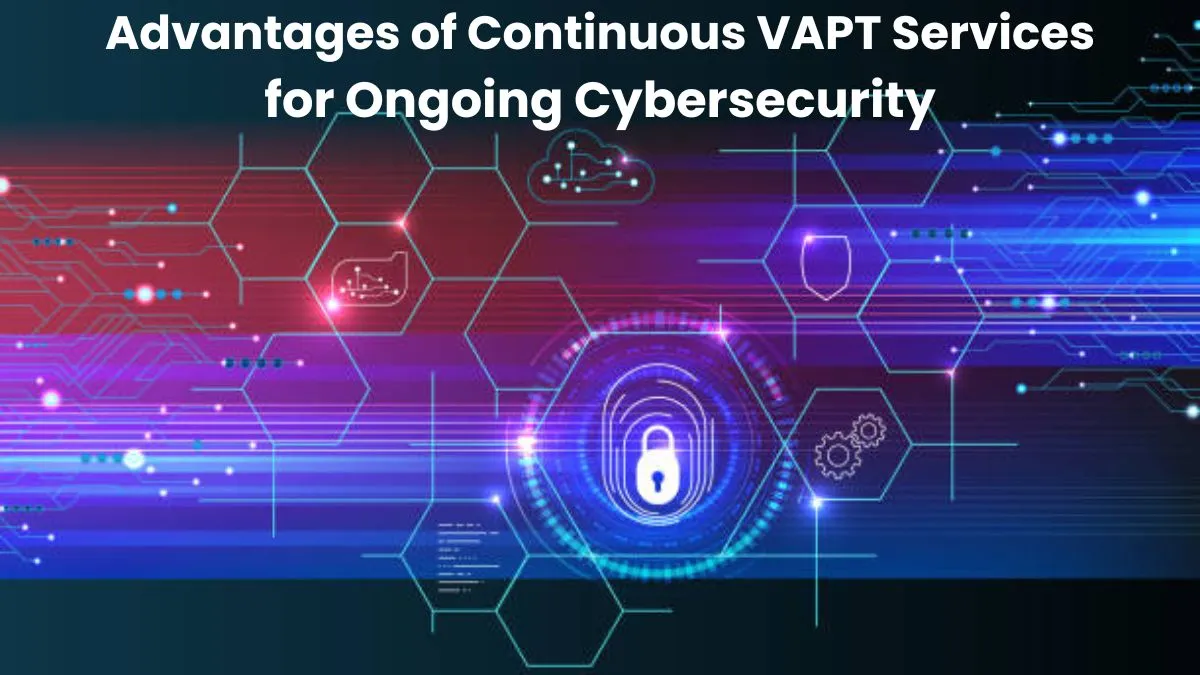In today’s hyper-connected digital world, the importance of cyber security cannot be overstated. From personal data breaches to massive organizational hacks, cyber threats are evolving every day. With more of our lives moving online—banking, shopping, working, and socializing—protecting digital assets has become as crucial as locking your front door.
Understanding the importance of cyber security helps individuals, businesses, and governments prepare for the unseen dangers lurking in the digital space. In this blog, we’ll explore 10 smart and practical ways you can stay safe online and strengthen your cyber defenses.
10 Smart Practices That Highlight the Importance of Cyber Security Online
1. Use Strong, Unique Passwords
Think of them as the lock to your online life—would you use a toy lock to protect a treasure chest? Using weak passwords like “123456” or “password” is like leaving your front door wide open for cybercriminals. Instead, build strong, complex, and unique passwords for every account. Mix uppercase and lowercase letters, numbers, and special characters to craft a password that’s nearly impossible to crack—like a digital vault key. Better yet, use a password manager to keep track of them all securely.
Better yet, consider using a password manager to generate and store your passwords securely.
The importance of cyber security begins with protecting your access points—your passwords.
2. Enable Two-Factor Authentication (2FA)
2FA acts like a second lock on your digital door—even if someone guesses your password, they can’t get in without a second key, like a one-time code sent to your phone. Even if someone gets your password, they still can’t access your account without this second key.
This is one of the easiest yet most effective ways to boost your security online.
3. Keep Your Software and Devices Updated
Cybercriminals often exploit outdated software. Regular updates fix security flaws and enhance protection against new threats. This covers everything—from your operating system and antivirus software to web browsers and mobile apps. Keeping each one updated ensures you’re protected from the latest threats.
Understanding the importance of cyber security means knowing that ignoring updates can open dangerous loopholes.
4. Be Cautious of Phishing Emails
Phishing continues to top the list of cyberattack techniques—fooling users with deceptive emails and messages to steal sensitive data.
These emails often look legitimate but are designed to trick you into sharing personal information or clicking harmful links. Always verify the sender’s email address, avoid clicking suspicious links, and don’t download unexpected attachments.
A single click can compromise your entire system.
5. Install Trusted Security Software
Having a strong antivirus or internet security suite can prevent malware, spyware, ransomware, and other threats. Choose trusted software from reputable vendors and ensure it’s always up-to-date.
Reliable software is a foundation of cyber hygiene, reinforcing the importance of cyber security for both personal and professional use.
6. Secure Your Wi-Fi Network
An unsecured home Wi-Fi is like leaving your front door wide open—cybercriminals can easily slip in and snoop on your data without you even knowing.
Change the default router login credentials, use a strong Wi-Fi password, and enable network encryption (WPA3 or WPA2). Consider hiding your SSID to make your network less visible.
If your Wi-Fi is vulnerable, your personal data is too—from passwords to private conversations, it’s all up for grabs.
7. Back Up Your Data Regularly
Ransomware is like a digital hostage-taker—it locks your files and demands payment for their release, often with no guarantee you’ll get them back.
Regular backups—stored offline or on the cloud—can help you restore your data without paying a ransom. Make backups a part of your weekly routine.
This proactive step shows you’re serious about the importance of cyber security.
8. Avoid Public Wi-Fi for Sensitive Transactions
Public Wi-Fi networks are notoriously insecure. Avoid using them for online banking, shopping, or accessing confidential files. If you must use public Wi-Fi, always connect through a Virtual Private Network (VPN) for encrypted traffic.
When in doubt, wait until you’re on a secured connection.
9. Educate Yourself and Others
Cyber threats constantly evolve. The smarter you are about cyber risks, the safer your digital world becomes. Stay updated through credible cybersecurity blogs, government advisories, and online training. Also, educate your family, friends, or employees about best practices.
Widespread awareness amplifies the collective importance of cyber security.
10. Monitor Your Accounts and Digital Footprint
Stay alert—monitor your bank accounts, social media, and subscriptions regularly. Unusual activity could be the first sign of a security breach. Use identity theft protection tools or enable account alerts. Early detection is key to stopping cyber threats before damage is done.
Being proactive helps you respond faster to cyber risks.
Importance of Cyber Security—Final Thoughts
The digital world offers unmatched convenience, but it also opens doors to serious threats. Whether you’re a student, working professional, or business owner, recognizing the importance of cyber security is critical to protecting your personal and professional life. The threats are real, but so are the solutions.
By following these 10 smart ways to stay safe, you’re taking a powerful step toward building a cyber-secure lifestyle. Don’t wait for a breach to value your privacy and data—act now.



